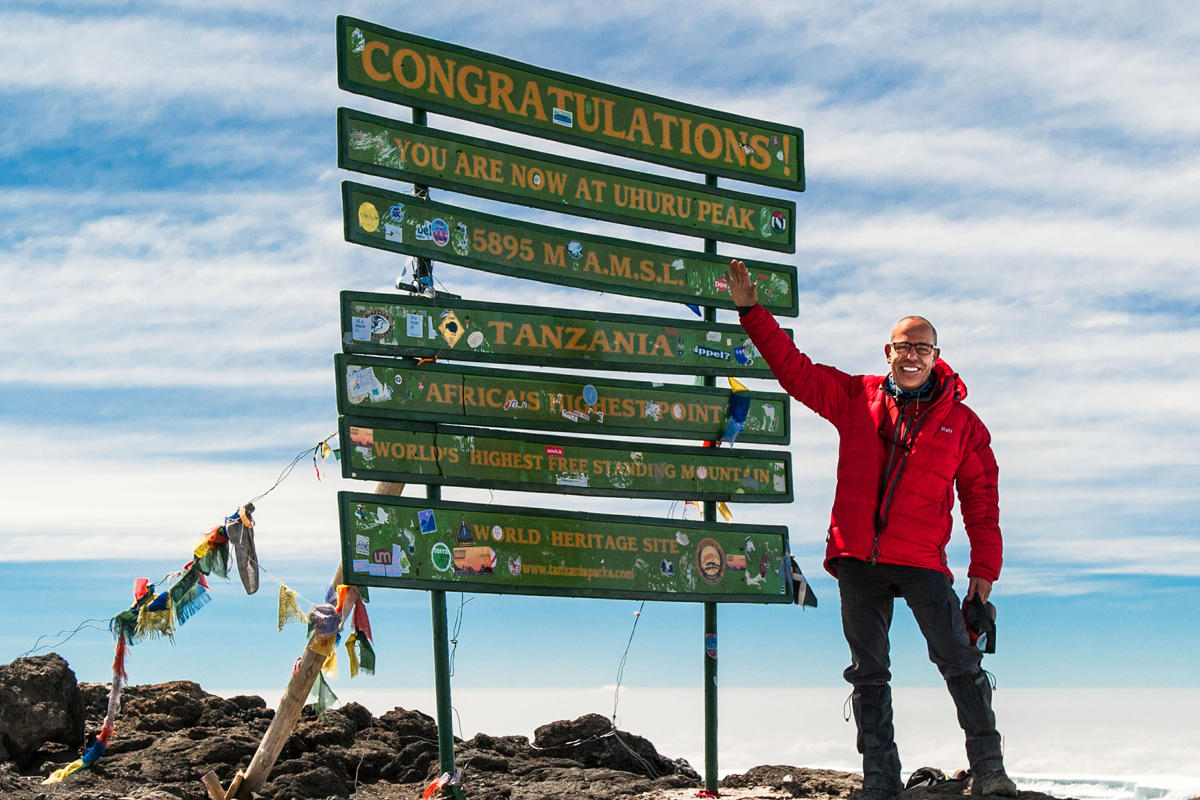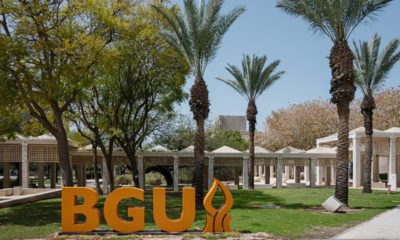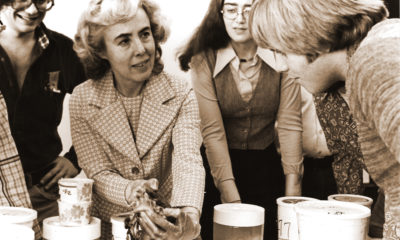
Lifestyle

COVID-19 – a Kilimanjaro for KDVP alumnus honoured in Canada
Published
2 years agoon
South African-born doctor Graham Sher was surprised, speechless, and deeply moved to be appointed an Officer of the Order of Canada, one of the country’s highest civilian honours, on 29 December last year.
This King David Victory Park (KDVP) matriculant, who has been chief executive of Canadian Blood Services (CBS) since 2001 and an executive from its founding in 1998, was honoured for his contribution to public health and for being instrumental in the development of Canada’s largest blood system operator.
During Sher’s time leading CBS, a national organisation with 4 000 employees, he has navigated the challenges posed by the West Nile virus and severe acute respiratory syndrome. Having also summited Mount Kilimanjaro in 2013 to raise funds for his organisation’s national public cord blood bank, his latest obstacle is the COVID-19 pandemic.
“Although I’ve managed many crises in the past, nothing has been as big, complex, sustained, and challenging as COVID-19,” Sher told the SA Jewish Report.
“In the many challenges I have had to lead the organisation through over time, I have had to be agile and responsive to understand what the nature of the emerging challenges are. I have had to protect the blood supply. I have made sure that safety is the single most important factor in every decision we make. I literally have been very close to the notion that a safe and secure blood supply is non-negotiable.”
When Sher emigrated to Canada after matriculating from KDVP in 1980 and completing his medical and doctoral degrees at the University of the Witwatersrand, he could never have dreamed of being tasked with conquering such hurdles.
“I had an outstanding and phenomenal education at Victory Park,” says Sher, who was at the school from Grade one to matric. “I remember very well some of my outstanding teachers. A lot of people were highly influential in my life – Joseph Sherman, Jeffrey Wolf, and a number of maths and science teachers.”
His time at KDVP was important for him in many ways. “I came out of there certainly prizing the values of education and striving to do one’s best. I grew up in a household that was probably substantially below the economic norm within King David, so I was very grateful for the financial support from the community, the board, and others to help me get through my time there.”
It taught him, he says, that there are always people in the world less fortunate than oneself. “It has certainly influenced who I am and the type of work I do. It’s one of the reasons I’ve been drawn to spend my career working in the public rather than the private sector.”
After becoming the first person in his extended family to obtain a university degree of any kind, he initially undertook a post-doctoral research programme at the University of Toronto. While there, he was accepted to pursue speciality training in haematology, the study of blood and blood disorders.
“One of the reasons I chose to come to Canada as opposed to the United States is that I’m a big believer in publicly-insured and publicly-administered healthcare systems,” says Sher. “Those systems, which we have in Canada, are better health systems than those in which access to healthcare is dependent on one’s economic ability.”
In the spring of 1998, when Sher was comfortably settled in Toronto with a flourishing academic medical career at the University of Toronto and the Toronto Hospital, he was approached to become the vice-president of medical affairs of a new organisation that would be replacing the Canadian Red Cross Society.
Before he knew it, he had his first executive position with the organisation that became CBS. Less than three years later, at just 38, he became its second chief executive.
“My role as CEO is to lead the organisation, set strategy, ensure operational success, and make sure we can deliver against our mission and mandate. What that entails is delivering a large number of products and services to the healthcare system to support every hospital in Canada.”
Sher says CBS is unique because it’s a national organisation, meaning that it has a responsibility for delivering products and services to the entire healthcare system across the country.
“Although our name stresses the word ‘blood’, we’re involved in many other business lines,” he says “We’re responsible for collecting blood from blood donors in Canada, manufacturing it, and testing it, making sure it’s safe, and sending it to all the hospitals. But we’re also responsible for the collection and manufacture of many human-plasma derived pharmaceuticals. We run a diagnostic laboratory division. We’re also responsible for all of the work involved in stem cell bone marrow transplantation and organ transplantation for the country.”
Some of the organisation’s achievements during Sher’s time at the helm are developing new products and services, commencing work with the organ and tissue donation and transplantation community, and opening a national public cord blood bank to collect and provide lifesaving cord blood stem cells for transplant.
Sher hired Tusker, a guide company in America, to lead him and the 24 other members of the group up Mount Kilimanjaro, the highest single free-standing mountain in the world, in 2013.
“Tusker’s owner turned out to be a Jewish ex-South African named Eddie Frank, who was a very good friend of one of my first cousins. He had a photograph of me at the Barmitzvah of my cousin, Paul Sher, 50 years earlier. To make a long story short, in climbing Mount Kilimanjaro for personal and professional reasons, I landed up connecting with an excellent African Jewish guy who lives in the United States and is world famous for leading clients up Mount Kilimanjaro.”
Frank successfully led Sher, who was in the best shape of his life at the time, and the other members of the group to the summit and back. “It was the hardest thing I have ever done in my life by far,” says Sher. “It was a complete life-changing event. It taught me that I could push myself to physical and emotional extremes in a way I had never really understood before.”
The previous year, the youngest of Sher’s three sons had his Barmitzvah at the Johannesburg-based Greenside Shul. “It was the same shul where I had my Barmitzvah,” says Sher. “Interestingly, the rabbi, Mendel Rabinowitz, was a good friend of mine at school at King David.”
Going forward, Sher wants to continue preparing CBS for the post-COVID-19 world.










